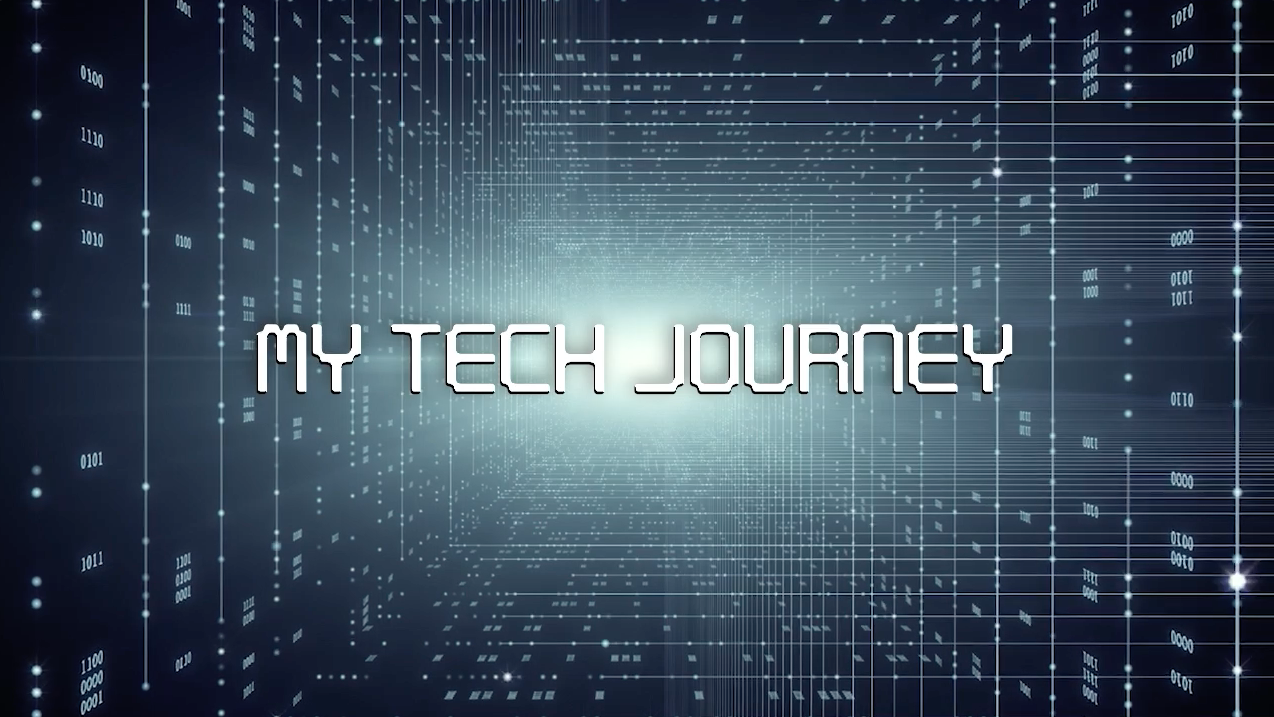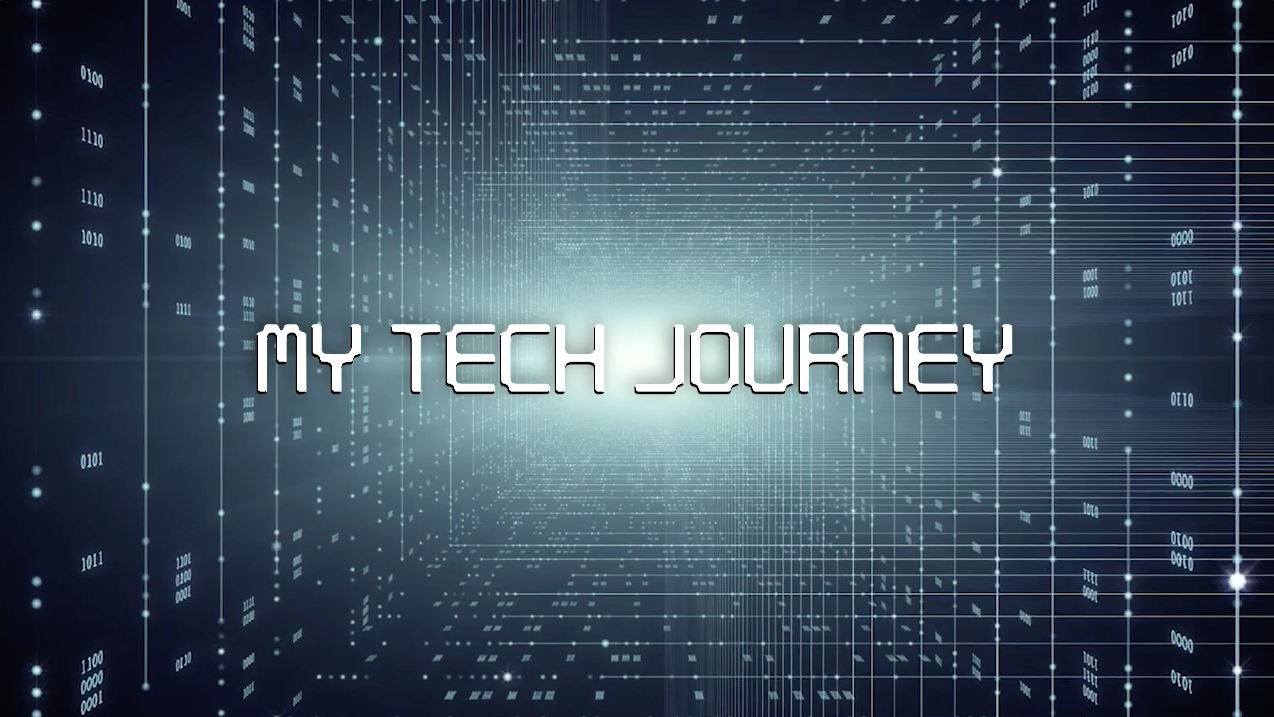Episode 2
Episodes
Mathew talks about biggest challenges in starting his college career, why he chose CIAT, his enrollment experience, first classes, and passing his first cert exams.
Mathew talks about landing his first internship, earning IT certifications, CIAT’s career support team, and offers some words of advice for new students.
Mathew talks about his dual degree program, learning to code, and how he’s prepared himself to juggle both school and career.
Mathew talks about his background, military and past college career, career goals and why he chose IT.
Subscribe to My Tech Journey
Subscribe to CIAT’s My Tech Journey to be notified when the next episode is released!
00;00;22;02 – 00;01;21;02
What was the biggest challenge that you overcame getting started with your education?
Money and knowing where to start. So money is a huge one. You’ve got. Education isn’t cheap. And a lot of people you hear all the time, everybody says, well, how do I do this? You know, I only have a little bit of money and they’re pursuing the Udemy courses and they’re doing these other things. And that’s fine. Self-study.
But for me, it wasn’t going to be good enough. So I had to make sure that money was going to be able to be – it has to be affordable for the school within my personal finances. I have to be stable. And so that was a big one. But then knowing where to start, you’ve got to choose the right program.
It’s got to be a good fit for you. And honestly, I didn’t have a really great plan into IT, where I was going to go with it, how to get started. You can go online and look at a bunch of different forums and everybody’s got a different opinion of where to start. But identifying that starting place is really difficult.
CIAT for me was a tremendous start because it allowed me to just get started.
00;01;24;02 – 00;02;55;09
What made you choose CIAT?
This is probably one of the most important questions that you could ask. Honestly, when I go to make any purchase, I do a ton of research. I only purchase things that are of high quality or and that I believe will provide exactly what I needed them to provide.
That’s the same thing with my education. I spent a ton of time researching top, top tier schools. I went to all of the schools, websites, and different brochures, and just I called a ton of people and spent a ton of time researching exactly who was going to provide what I needed and what I anticipated. What I needed was not just the experience, right?
You can’t just give me the knowledge and then say, “Oh, hey, got into the world, make money”. Not just the certifications I can’t just get certifications because you can do brain dumps, and then you can get your certifications and then you have the practical knowledge. I needed both of those things and I needed it to be affordable and needed to be something that would work with the VA.
CIAT is the only institution that I found in the entire country – in the world, actually, because I went international for online institutions that checked all three of those boxes for me. They offer a top tier degree program. They offer certifications with every single course and it’s something that works at the VA. And not only that, but they make it affordable and customizable for me. That means that I get absolutely the best possible outcome and the best possible education.
00;02;55;09 – 00;03;33;09
What was your enrollment experience like?
So for my, for my enrollment experience, it was super, it was very streamlined, very quick very efficient. Everybody is is very quick in their communications. We were able to send email correspondence back and forth, and I believe I was actually enrolled and signed up within just a few days from the time that I made my decision to the time that I was saying, “Okay, we’re good to go”.
It was less than a week. I’m almost certain of it because I have such a small, narrow window of time before the next class started. So that enrollment experience was phenomenal. Absolutely. Hands-down.
00;03;37;12 – 00;04;38;21
Tell us about your first IT Fundamentals class & acclimating to CIAT’s accelerated 5-week schedule…
ITF was not what I expected. I opened the book and I flipped through the ATF book and I said, I know this. I don’t need to read any of this. So what are we…
What are we doing here? And then I found out in week one that we’re discussing SQL and things that make no sense as an introductory thing. I still don’t know nearly as much as I wanted to know about SQL. And so I’m going through this introductory class thinking I know everything for the first probably two to three weeks and then realizing that, I don’t know.
It was a little bit of a shock factor, and I had to acclimate to that five weeks that accelerated path or “path” – program at the same time that I was accepting or forcing, forced to accept that I didn’t know as much as I thought I did. And so that was interesting, it was an adventure.
00;04;38;21 – 00;05;57;01
Tell us about your Computer Hardware Fundamentals & Computer Operating Systems classes…
So that A+ core 1 and core 2, the hardware fundamentals and operating system they were the most challenging for me that I had to do.
And a lot of it had to do because with what I was dealing with in my personal life, things aren’t always raindrops and lollipops. And people just, you know, we have our lives that we have to deal with. I found that the core 1 portion was actually easier than the ITF. I passed that easily without any issues at all.
And in the core two portion, as we get into the command line interface and then the operating system fundamentals and starting to get into some of that more in-depth stuff, that was much more difficult because of the specific things that you need to learn and understand about networking and how to interface with different operating systems that you may not have hands-on the ability to actually deal with in a day to day basis.
Learning all of that in a five week period at the same time that you’re also dealing with your your personal life and stuff like that was quite challenging. And I’m actually getting ready to schedule that core 2 exam here in the next couple of days.
00;05;57;01 – 00;07;00;00
What are you enjoying most about the program?
I love the program. I have the opportunity. I have the opportunity to learn about the stuff in the technology and the – I don’t like reading. I hate reading. I absolutely don’t like it, but it’s presented in a format where I don’t have to necessarily read the book. It’s beneficial, but I’m able to do my classes and then I’m able to go online and do the video lessons and look at some of the resources and then engage in the students.
But one of the things that I’m really enjoying is the fact that I’ve got a student that I help with some of her schoolwork she has three classes are terms ahead of me, and I get to sit down with her and help her on some of the things she is struggling with. And I get to also do that with some of my other peers when they reach out and say, hey, you know, this seems like you’ve got your – a good grasp on this.
Can you help me? So I get to pass that on. And some of it, I’m like, I don’t actually know it, but let’s figure it out together. And I love having the opportunity to do that.
00;07;00;00 – 00;08;24;16
Tell me about your class experience – the virtual labs, your instructors, working alongside your other classmates…
So the virtual labs are possibly too easy they are very seriously. You check the box, you just go down the list and there’s no issues. I’ve only had a couple of labs that we did where and it might have been intentional. The lab didn’t work. We had to troubleshoot it and figure out how to make it work. But for the most part, you’re going through these labs and it’s just kind of getting your hands dirty a little bit, you know, figuring out how to do these things as you’re, you know, walking through this checklist. Doing, you know, having that small class size in those class interactions has been really great.
I think that if we had too many students in a single class, then it would be hard for us to be in those live sessions engaging the instructor meaningfully. And that’s one of the things that I value a lot. We have the instructor, and he’s not just standing in front of a chalkboard, you know, spinning a bunch of information at us.
He’s able to answer questions in real time and discuss things with us, our issues, our questions and everything that we’re dealing with in lesson and even walk through some of those things with us in real time, instead of having to schedule those little tutoring sessions or one on one so…
00;08;24;16 – 00;09;58;11
Congratulations on passing your ITF & A+ exams on your first attempts! Do you have any tips to share on passing your first exams?
Maybe a little cliché, but you have to know your learning style.
I could not pass any of my exams personally by just reading it in a book. I can’t do it, nor could I do it if I just listened to an instructor lecture to me all the time. I have to get my hands on it. And so it’s super important to know that learning style and set up your space in a conducive manner.
If I showed you my setup right now, I have actually three screens which allows me to engage fully in my studies, but at the same time I found one of the most important things I can do is this right here – anything that needs done, anything that needs done, goes on this sticky pad and I put it on my monitor so I can take that off the monitor when it’s done.
And as I’m studying, because I get distracted super easy, I have this notebook. Any thoughts that come to my mind that I might want to explore that you know “shiny squirrel syndrome”, I write it down and then it’s out of my mind and I can take care of it later. That’s allowed me to be so much more productive.
And then as you actually get ready to take the exam you can spend a bunch of time reviewing materials. Fine if you want to do that. But for me, I found that going and taking the practice test, I took every single practice test I could find on the Internet, every single one. When I took the A+ the first time, it was over 200 practice tests, and that allowed me to just get very comfortable with the format and if I didn’t know something, I could go back and review it and then bring that to the table. When I actually took the certification exam.

